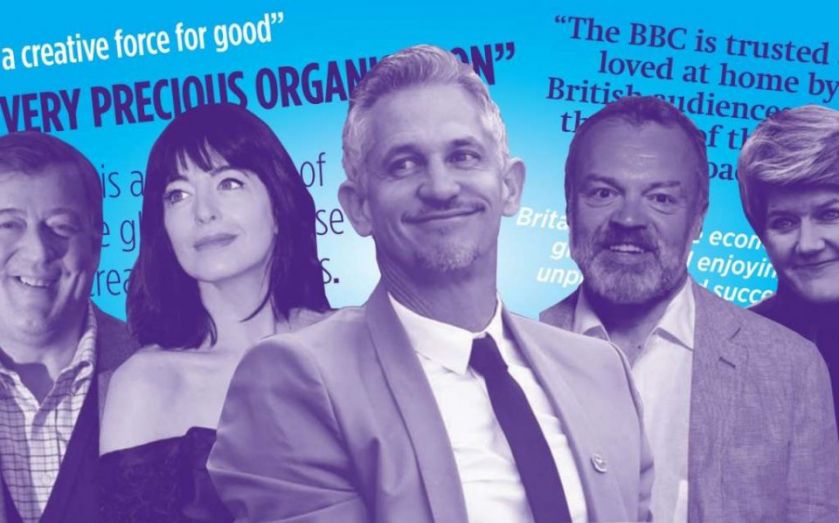BBC shows the strain over Tory reform plan: “Aunty has very much pulled up her sleeves”

The BBC ramped up its fight with the government yesterday as a groundbreaking Conservative review threatened the broadcaster’s size, funding, content and regulation.
Culture secretary John Whittingdale revealed a green paper on the future of the corporation, questioning whether it should aim to be “all things to all people”, attacking its “regressive” licence fee scheme and suggesting a mix of public funding and subscription services could be used to fund it in future.
The BBC quickly came out swinging, stating that the paper “would appear to herald a much diminished, less popular BBC”.
“It is important that we hear what the public want. It should be for the public to decide whether programmes like Strictly or Bake Off, or stations like Radio One or Two, should continue.” It also argued that the corporation “is not owned by its staff or by politicians, it is owned by the public … Their voice should be heard the loudest.”
The bold and unusually undiplomatic rebuke came as it emerged that a letter in support of the BBC signed by 29 celebrities had in fact been orchestrated by the BBC’s director of television, Danny Cohen. Michael Palin said the boss had lobbied him to sign it as he was “worried the BBC would become smaller”.
Meanwhile industry insiders spoke of increased “house ads” for the corporation recently, as the BBC fights back against a Tory government determined to exercise its muscle with a full root and branch review.
“The gloves are definitely off,” said Broadcast news editor Jake Kanter. “The statement they issued today is as punchy as the BBC gets. Aunty has very much pulled up her sleeves.”
“Saint Tony [BBC director general Tony Hall] has finally woken up and realised he has an existential threat on his hands,” added Claire Enders, a media commentator and head of Enders Analysis. “The BBC has been cutting costs since 2008 but there is likely to be another 8,000 job cuts at the BBC between now and 2026.”
The green paper will be subject to public consultation before an expected bill or white paper is put before parliament, probably next year.
Speaking in the House of Commons, Whittingdale said: “One key task is to assess whether the idea of universality still holds water. With so much more choice, we must at least question whether the BBC should try to be all things to all people.”
He questioned whether the BBC should be making shows like The Voice, saying “it provides a range of programming which is arguably less distinctive from the content that its commercial competitors provide.”
Looking at the question of whether the BBC Trust should be axed, he said the BBC had on occasions “fallen well short of the standards expected of it” including the Jimmy Savile crisis and the Digital Media Initiative, the failed £100m technology project.
Whittingdale said options include: “to reform the Trust model, create a unitary board and a new standalone oversight body or move external regulation wholesale to Ofcom.”
The green paper announcement came just 10 days after the government announced the BBC’s latest funding deal, which saw the corporation take on the £750m cost of free TV licences for over-75s.
However, there was one piece of good news for the BBC in Whittingdale’s speech. He confirmed the independent report from David Perry QC into decriminalisation of non-payment of the licence-fee had concluded it would not be appropriate under the current funding model.